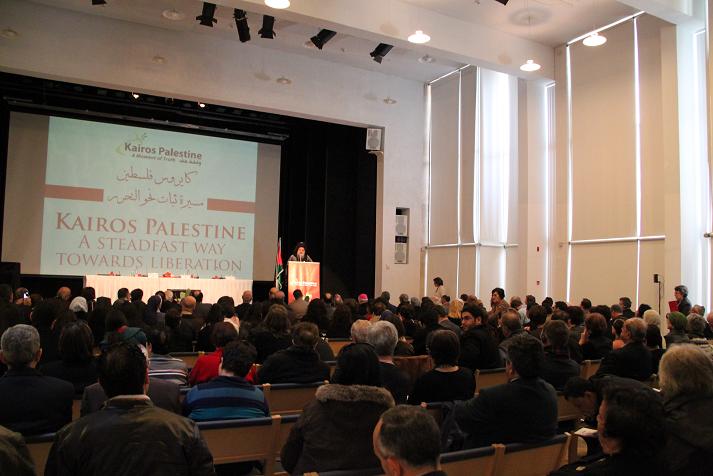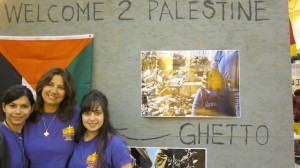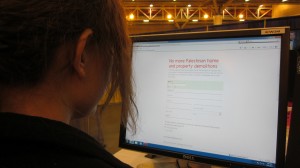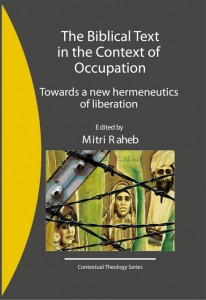
Children hold hands in Za’atri Refugee Camp in northern Jordan, caring for thousands of Syrian refugees.
Lutheran World Federation President Munib Younan, Bishop of the Evangelical Lutheran Church of Jordan and the Holy Land, released his Christmas message this week, urging people to think of Christmas as a time to remember the refugees among us, even as the Christ child was born to a refugee family.
We can see the faces of the Holy Family today in refugee families forced to flee from Syria into the Za’atri refugee camp in Jordan, in Somali refugee families in the Dadaab complex in northeastern Kenya, and in other refugees throughout the world. In Europe today, we see the Holy Family in the experiences of Roma communities. An ancient nomadic culture, Roma are still exposed to marginalization simply because they do not conform to dominant culture.
Many refugees are uprooted with little hope for a solution. I am one of them, a Palestinian who carries a refugee card. I know what it means to be rejected, neglected and stateless. My heart breaks for every refugee, for every family forced from their home. In this Christmas season, we know that Christ finds his manger in every person who seeks asylum, in each of the nearly 44 million refugees and internally displaced people throughout the world. Forced to escape Herod’s persecution, Christ experienced abuses of power and the effects of armed struggle.
The child of the manger continues to understand the plight of every refugee wherever they are. The duty of the church is to be a safe haven for all refugees, asylum seekers and migrants. To them we say, “Do not be afraid. A Savior is born to you and the whole world.” They must find a place in our inn.
We in the Lutheran communion continue to commit ourselves to accompanying God’s people, especially those who are marginalized and displaced. Our call is to provide refuge from violence and poverty, shelter in the storms, and shade from the heat. Today, the LWF is directly serving nearly 1.5 million refugees throughout the world. That means that each of our 143 member churches is responding to the needs of 10,500 refugees. This generous spirit reflects the strength of our communion working together to respond to God’s call to welcome the stranger.
Read the full Christmas message | Read LWF press release





